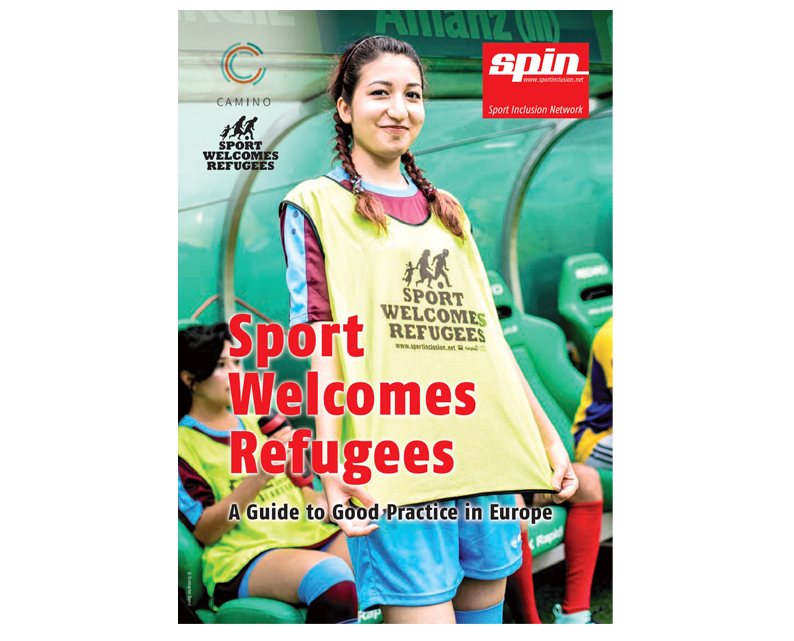This guide was authored by the Berlin-based NGO Camino on behalf of the partners of the Erasmus+ Project “Sport Welcomes Refugees” coordinated by the Sport Inclusion Network (SPIN). Through 40 pages, it provides insight into the political context of the project partners’ home countries (Finland, Portugal, Ireland, Germany, Greece, Italy, Austria, and Hungary), before presenting 33 good practices from these countries, a third of which includes football.
Beyond the description of the very heterogeneous sample of initiatives, the document also provides a concise “checklist” that lists critera for successful attempts to “include refugees in and through sports”, meant to “serve as guidelines for high-quality sports activities” (p. 39-42). These criteria clearly give priority to participation rather than performance and include issues such as:
- Project conception – objectives, target group(s), planning, anticipation of support needs;[1]
- Cooperation and networking – with other social organisations and external partners;
- Qualification – concerning skills (development) of coaches and training supervisors;
- Gender sensitivity – tailoring offers (and sportswear!) to women/girls, involving female coaches as role models;
- Inclusion and active participation – encouraging refugees to get actively involved, aiming at permanent incorporation in the club;
- Intercultural awareness – qualification of coaches, anti-racism statements, open-minded atmosphere, non-discrimination guidelines;
- Communication and transparency – addressing concerns of other club members, promotion of the sports offer, general transparency with all stakeholders.



